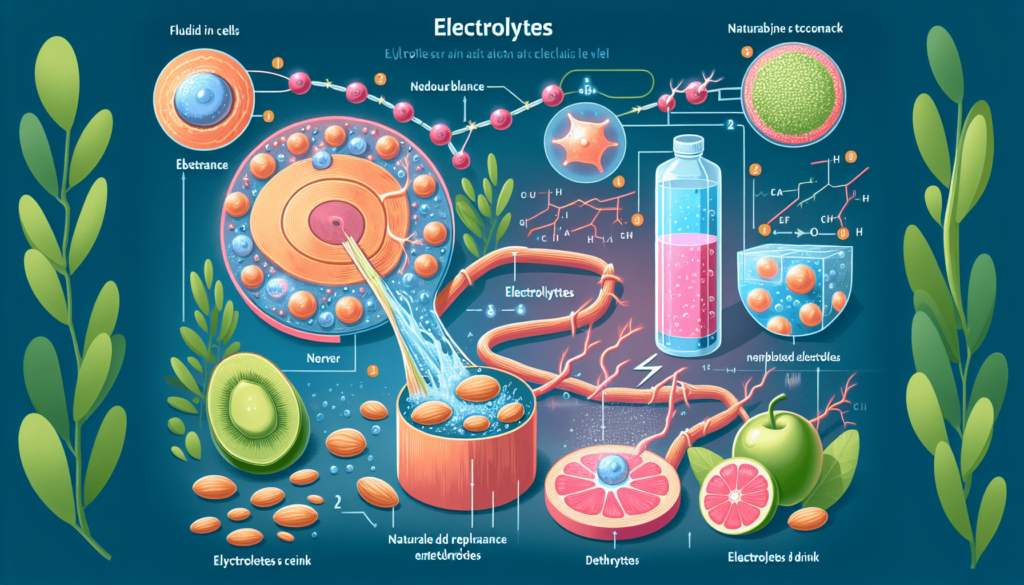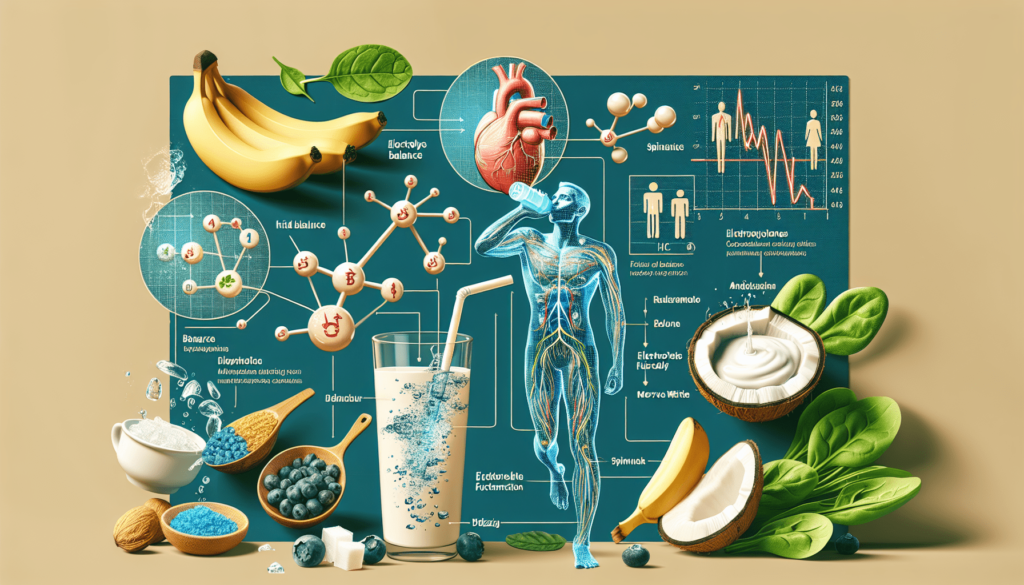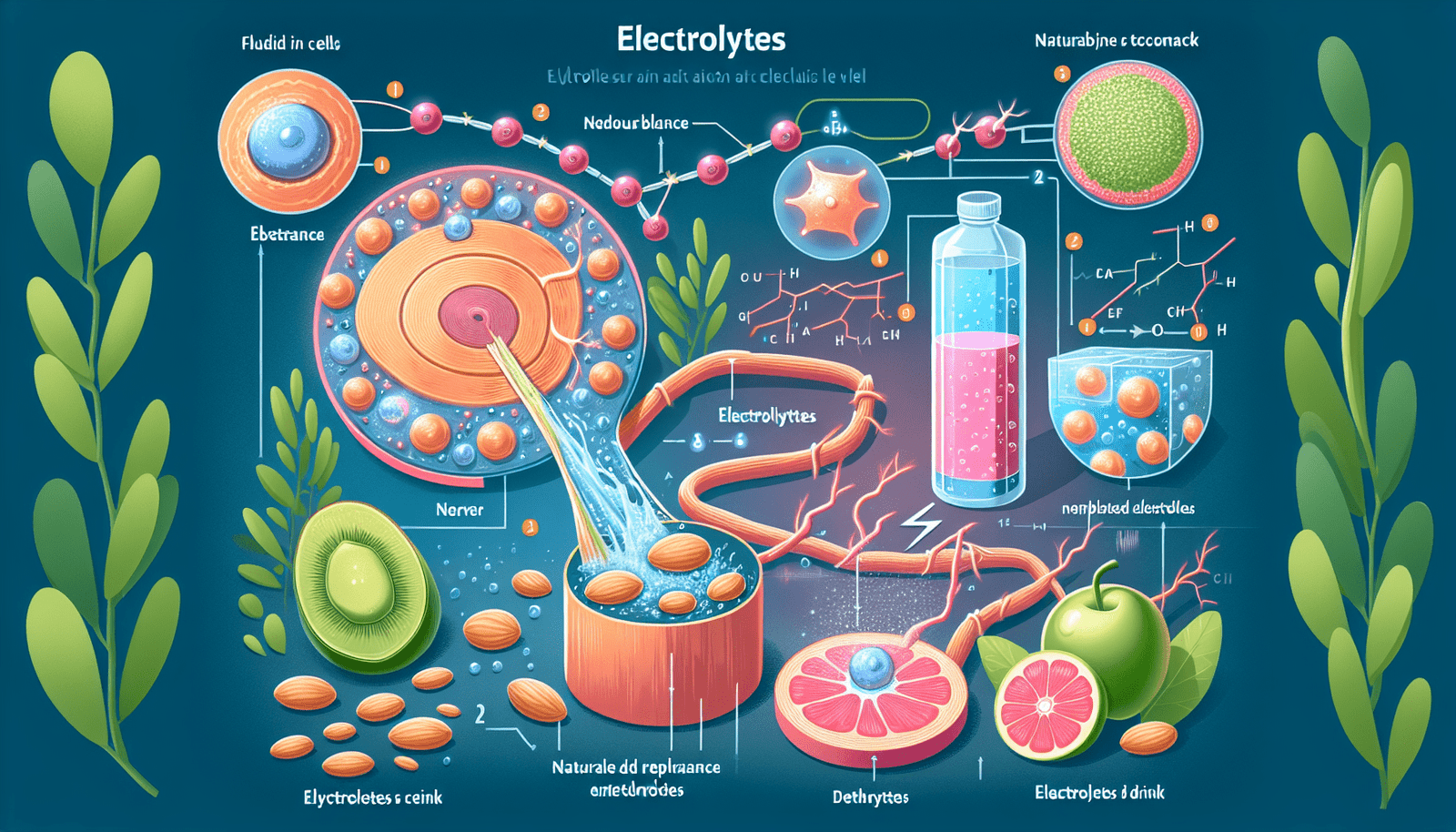You may think of electrolytes as just another buzzword thrown around in the world of sports drinks, but they are actually much more than that. Electrolytes play a vital role in our bodies, helping to regulate essential functions such as hydration, muscle contractions, and nerve impulses. In this article, we will uncover the true significance of electrolytes and how they can benefit not only athletes but also everyday individuals. So, buckle up and get ready for an electrifying journey into the world of electrolytes!
What are Electrolytes?
Definition and Explanation
Electrolytes are minerals in the body that carry an electric charge. They play a vital role in various physiological functions by regulating the balance of fluids in the body, facilitating muscle contractions, and maintaining the proper functioning of the nervous system. These minerals dissolve in bodily fluids, such as blood and sweat, and are essential for overall health and well-being.
Common Types of Electrolytes
There are several common types of electrolytes found in the body, including sodium, potassium, magnesium, calcium, chloride, and phosphate. Each of these minerals has distinct functions and is essential for the proper functioning of specific bodily systems. Sodium and potassium, for example, are crucial for maintaining fluid balance and transmitting nerve impulses, while magnesium plays a vital role in muscle function and energy production.
Roles and Functions in the Body
Electrolytes perform critical roles in the body to ensure proper functioning and overall health. Sodium and potassium help regulate water balance and maintain proper hydration levels. These minerals also play a key role in transmitting nerve signals and muscle contractions. Calcium is necessary for strong bones and teeth, as well as for blood clotting and muscle function. Magnesium is involved in over 300 enzymatic reactions in the body, supporting muscle and nerve function, regulating blood pressure, and maintaining a healthy immune system. Chloride helps balance the body’s pH levels and aids in digestion, while phosphate is vital for energy production and maintaining bone health.
Electrolytes in Sports Drinks
Why Electrolytes are Important During Exercise
During exercise or intense physical activity, the body loses electrolytes through sweat. These electrolytes need to be replenished to maintain optimal hydration, muscle function, and overall performance. Electrolyte imbalance can lead to muscle cramps, fatigue, and reduced athletic performance. Therefore, it is crucial to understand the importance of electrolytes in supporting physical activities.
Electrolytes in Sports Drinks
Sports drinks are commonly marketed as a means to replenish electrolytes lost during exercise. These drinks typically contain a combination of electrolytes, such as sodium, potassium, and chloride, along with carbohydrates for energy replenishment. The electrolytes in sports drinks help restore the balance of minerals in the body and aid in rehydration during and after physical exertion.
Do You Really Need Sports Drinks to Replenish Electrolytes?
While sports drinks can be beneficial for individuals engaged in intense or prolonged physical activity, they may not be necessary for everyone. For those participating in moderate exercise or shorter-duration workouts, replenishing electrolytes can often be achieved through a balanced diet and adequate hydration with water. Natural sources of electrolytes, such as fruits, vegetables, and coconut water, can provide the necessary minerals without the added sugars and artificial ingredients found in many sports drinks. It is essential to assess individual needs and consider healthier alternatives before relying solely on sports drinks for electrolyte replenishment.

Other Sources of Electrolytes
Food Sources of Electrolytes
Maintaining a diet rich in electrolyte-containing foods can help ensure a proper balance of minerals in the body. Foods such as bananas, oranges, avocados, spinach, yogurt, nuts, seeds, and fish are all excellent sources of different electrolytes. Including these foods in your daily meals can contribute to electrolyte replenishment and overall health.
Natural Drinks with Electrolytes
In addition to food sources, natural drinks can also provide essential electrolytes. Coconut water, for example, is a natural beverage that contains high levels of potassium and magnesium, making it an excellent option to replenish electrolytes. Other natural drinks, such as watermelon juice and homemade electrolyte-infused beverages, can also provide a refreshing and nutritious way to support electrolyte balance.
Signs of Electrolyte Imbalance
Common Symptoms
An imbalance in electrolyte levels can lead to various symptoms and complications. Some common signs of electrolyte imbalance include muscle cramps, fatigue, weakness, irregular heartbeat, confusion, dizziness, nausea, and excessive thirst. These symptoms can vary depending on which electrolyte is lacking or present in excess. It is important to recognize these signs early on to prevent further complications.
Risks and Complications
Ignoring or neglecting electrolyte imbalances can have severe consequences for your health. Inadequate intake of electrolytes can result in dehydration, muscle weakness, impaired nerve function, and even organ damage. On the other hand, excessive consumption of certain electrolytes, such as sodium, can lead to high blood pressure and other cardiovascular complications. Electrolyte imbalances should not be taken lightly, and it is advisable to seek medical attention if persistent symptoms occur.

Electrolytes and Hydration
The Link Between Electrolytes and Hydration
Electrolytes play a crucial role in maintaining proper hydration levels in the body. Water alone is not enough to fully hydrate the body, as it does not contain the necessary minerals to retain fluids in the cells. Electrolytes, such as sodium and potassium, help regulate water balance by facilitating the absorption and retention of water. This is especially important during exercise or hot weather when excessive sweating can lead to electrolyte loss and dehydration.
The Importance of Maintaining Electrolyte Balance for Proper Hydration
Proper electrolyte balance is essential for optimal hydration. Electrolyte-rich fluids aid in the absorption of water and prevent dehydration, ensuring that the body functions at its best. Consuming electrolyte-rich beverages or incorporating electrolyte-rich foods into your diet can help maintain this balance and support hydration levels, especially in situations where higher fluid losses occur.
Electrolytes and Muscle Function
How Electrolytes Affect Muscle Contractions
Electrolytes, particularly calcium, sodium, and potassium, are involved in muscle contraction and relaxation. Calcium regulates the release of neurotransmitters that stimulate muscle contractions, while sodium and potassium facilitate the movement of electrical impulses in muscle fibers, allowing them to contract and relax. When electrolyte levels are imbalanced, muscle function can be impaired, leading to cramps, weakness, and decreased performance.
The Role of Electrolytes in Muscle Performance
Electrolytes are crucial for muscle performance, as they help maintain muscle function, energy production, and recovery. Proper electrolyte balance ensures that muscles receive the necessary signals to contract and relax efficiently, allowing for optimal performance during physical activities. Imbalances in electrolyte levels can cause muscle fatigue, cramps, and reduced endurance, hampering overall athletic performance. Therefore, maintaining a proper balance of electrolytes through diet and hydration is vital for athletes and individuals engaging in regular physical exercise.
Electrolytes and Nervous System
Transmission of Nerve Signals
The nervous system relies on the proper functioning of electrolytes to transmit signals effectively. Sodium and potassium ions generate electrical impulses that travel along nerve cells, enabling communication throughout the body. These ion channels help initiate and propagate nerve signals, ensuring the smooth transmission of information between various body parts. Any disruption in electrolyte levels can interfere with nerve cell function and lead to impaired nervous system function.
Maintaining Nervous System Function
Electrolytes play a vital role in maintaining the proper functioning of the nervous system. Calc… [END OF GENERATED TEXT]

